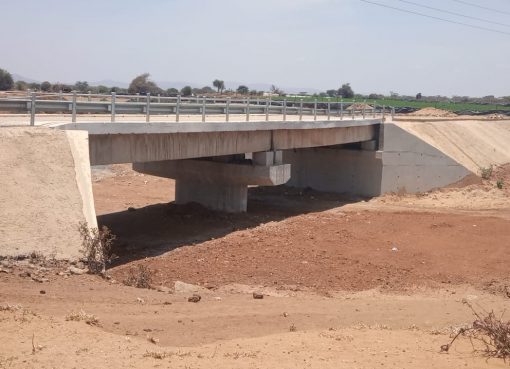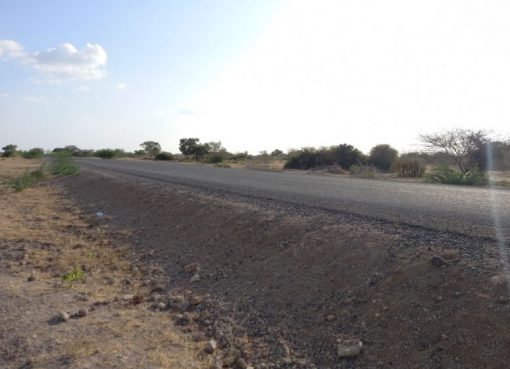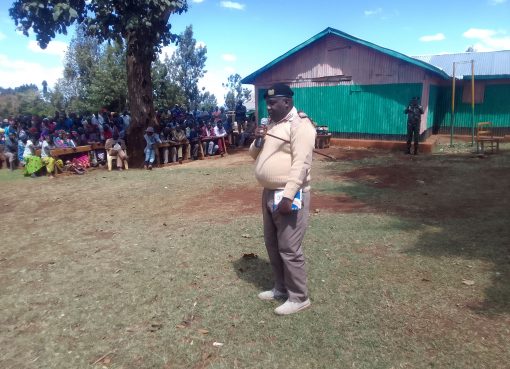Brooke East Africa CEO Eng. Fred Ochieng and Kenyatta University Vice-Chancellor Prof. Paul Wainaina have signed a Memorandum of Understanding to start donkey breeding to curb the species extinction.
Donkeys in Kenya stare at a bleak future following the legalization of donkey meat as the demand for hides in the Chinese market soars leading to theft and cross-border smuggling.
Speaking on Thursday at the University’s Kitui Campus located 25 kilometres South of Kitui Town during a farmers’ workshop, Eng. Ochieng lamented that the ballooning Chinese black market merchants’ demand for donkey skins in collusion with unscrupulous skin traders in Kenya endangered the animals’ future.
The CEO warned that if donkey welfare actors do not respond, the animal will be extinct in the next decade.
‘We have agreed to collaborate to develop a donkey model farm through research to improve the donkey breeds. This farm center of excellence will help other farmers across the region to learn best practices to care for the donkey,’ said Eng. Ochieng.
This shocking revelation came against the backdrop of Kitui County’s donkey policy, which is at the County Assembly for debate, aimed at providing appropriate legislation to ensure the donkey welfare is protected from abuse.
‘The construction of a donkey abattoir in Kithyoko, which falls under Machakos County, is a sure indication that the slaughter house is targeting donkeys from Kitui County as its catchment area,’ disclosed Eng. Ochieng.
On his part, Kenyatta University Vice-Chancellor Prof Wainaina said that donkeys provide draught power, transport, milk, meat, manure and skins which contribute to improved livelihoods of the communities that use them.
However, Prof Wainaina noted that there are gaps in knowledge on nutrition, breeding, proper donkey handling and use of veterinary drugs.
‘Integrating donkeys into the Kenyatta University Teaching Farm will provide opportunities to researchers to formulate donkey welfare programmes, medicine, pharmacology and general husbandry practices,’ said the Vice-Chancellor.
Commenting on the economic importance of donkeys, Esther Mutua, a donkey owner from Kyuso said that despite their valuable contributions to human society, the slaughter houses demand will destroy their livelihoods.
‘They receive least consideration in comparison to other species of livestock and their welfare is often quite neglected because they are usually the cheapest, often the only affordable working animal and therefore tend to be associated with the poor,’ said Mrs Mutua.
She disclosed that donkeys are sole breadwinners in several households and called for concerted efforts to protect the endangered beast of burden.
Samuel Mulonzya, Mwingi Central Donkey Owners Chairman condemned the proposed commissioning of the Kithyoko donkey slaughterhouse along the Mwingi-Garissa highway.
Mulonzya observed that allowing the construction will fuel illegal skinning, smuggling across the borders and theft.
He said that traditional beliefs and low purchasing power of owners result to a negative attitude that manifest in prioritization of the other livestock over the needs of working donkeys.
‘This reflects on provision of feeds, water, medication and vaccination to donkeys and consequently it affects their welfare,’ said Mulonzya.
He lamented that working donkeys are not provided with housing and protection at household level.
“They are overworked during day time and left to feed at night which expose them to stealing by thieves and attack by wildlife. Similarly, there is no established way of dealing with aged donkeys that no longer work,” said Mulonzya.
By Yobesh Onwong’a




